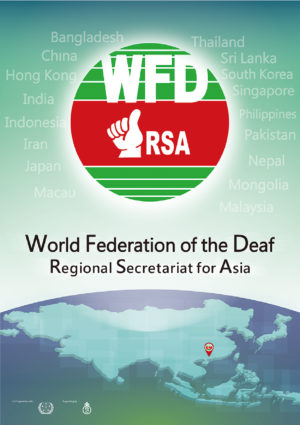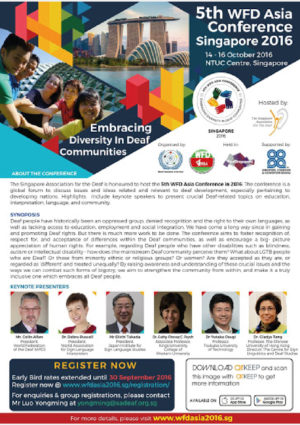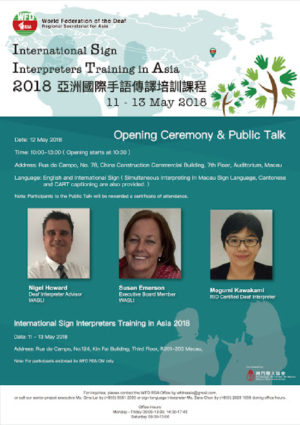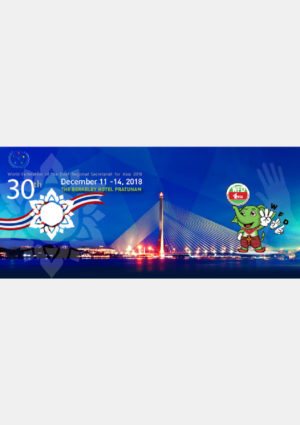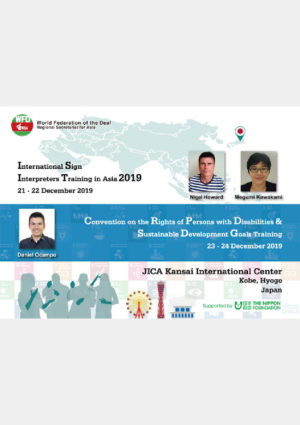Report on Promoting the Legal Recognition of Sign Languages in the Asia Pacific Countries
The Nippon Foundation, Deaf Aotearoa and the WFD RSA have organized together a meeting for delegates from Deaf Associations in the Asia Pacific regions to discuss about the legal recognition of sign languages. Delegates from New Zealand, Fiji, Japan, South Korea and Philippine, as well as delegates from the KODDI (Korea Disabled people’s Development Institute) have attended the meeting in New Zealand.
The two-day program includes:
- A meeting and a reception by the Minister for Disability Issues – Honorary Carmel Sepuloni at the Parliament. From there, the delegations discussed with Hon. Sepuloni regarding the government ongoing support for the recognition and status of sign language, and a summary of the current status of sign language in the Asia and Pacific region have been introduced; and
- A workshop on Sign Language Legal Recognition in Asia and the Pacific have provided insights and sharing of experiences to the path to having sign language recognized in New Zealand, Philippine and also South Korea.
Keynote speakers Dr. Rachel McKee, a sign language recognition scholar from Victoria University of Wellington and Hon. Ruth Dyson, MP who led the NZSL Bill through New Zealand Parliament 2004-2006 are invited to share their work with the delegations. Involvement of the Deaf community in advocacy, legislative development and implementation are important during the process of having legal recognition of sign languages. Also, leadership from the government and keeping a close communication with the government are crucial to success as well.
Some After Thoughts:
With the legal recognitions of sign languages in different Asia countries, though there are still a lot of work to be done for the betterment of the status of sign language, the recognition itself has given more room for sign language to develop, to research and to grow. With legal recognitions of sign languages, it allows the society to understand the equal rights of the Deaf persons, such as access to information, appropriate education, communication, etc. With legal recognitions, the Deaf community can truly have full participations in the society.
Acknowledgements:
WFD RSA would like to acknowledge the wonderful efforts and arrangements from the Deaf Aotearoa, as well as the support from the Nippon Foundation for promoting the recognition of sign languages in the Asia Pacific countries. This meeting will not be the last, and we look forward to seeing more Asian countries or regions to have their sign languages recognized legally








